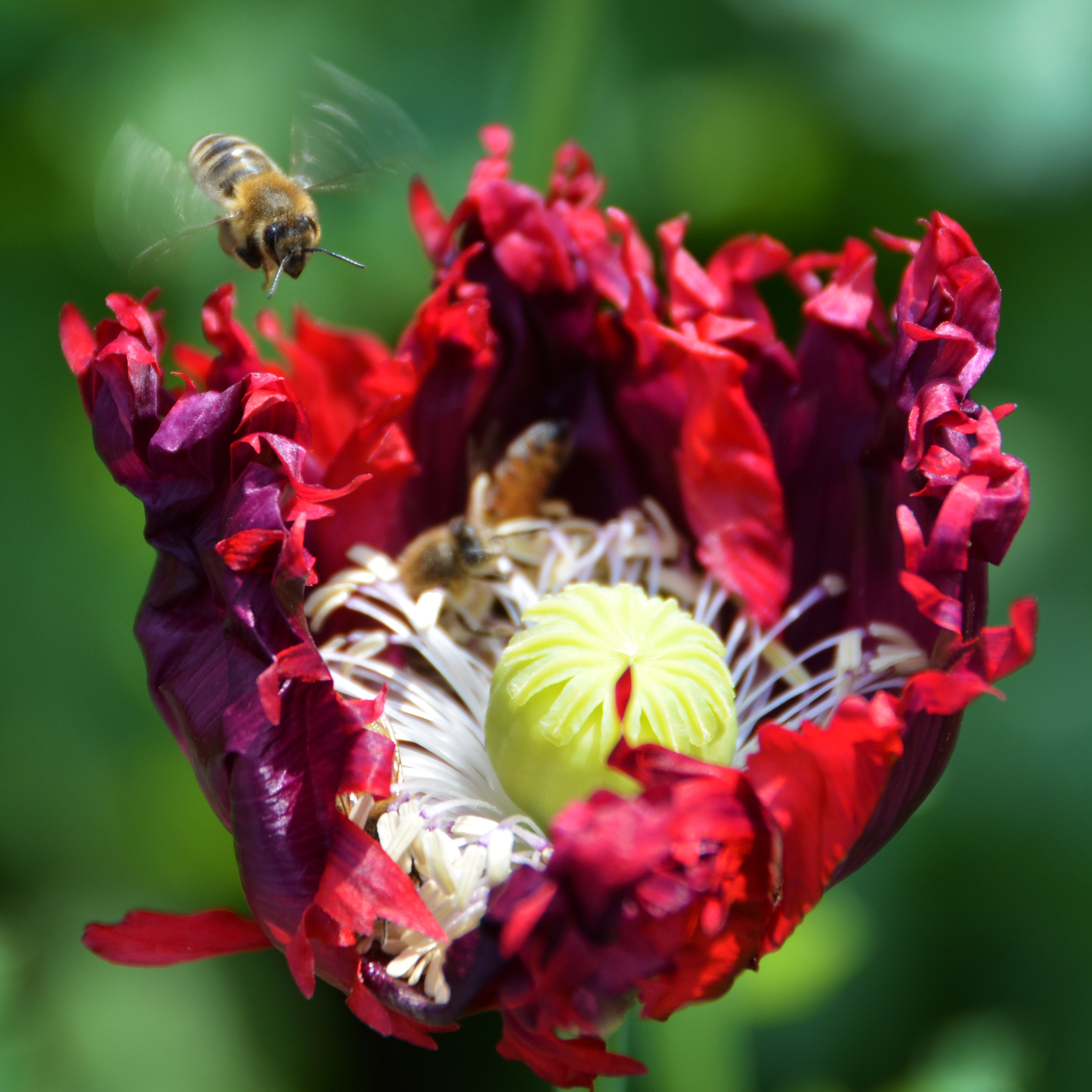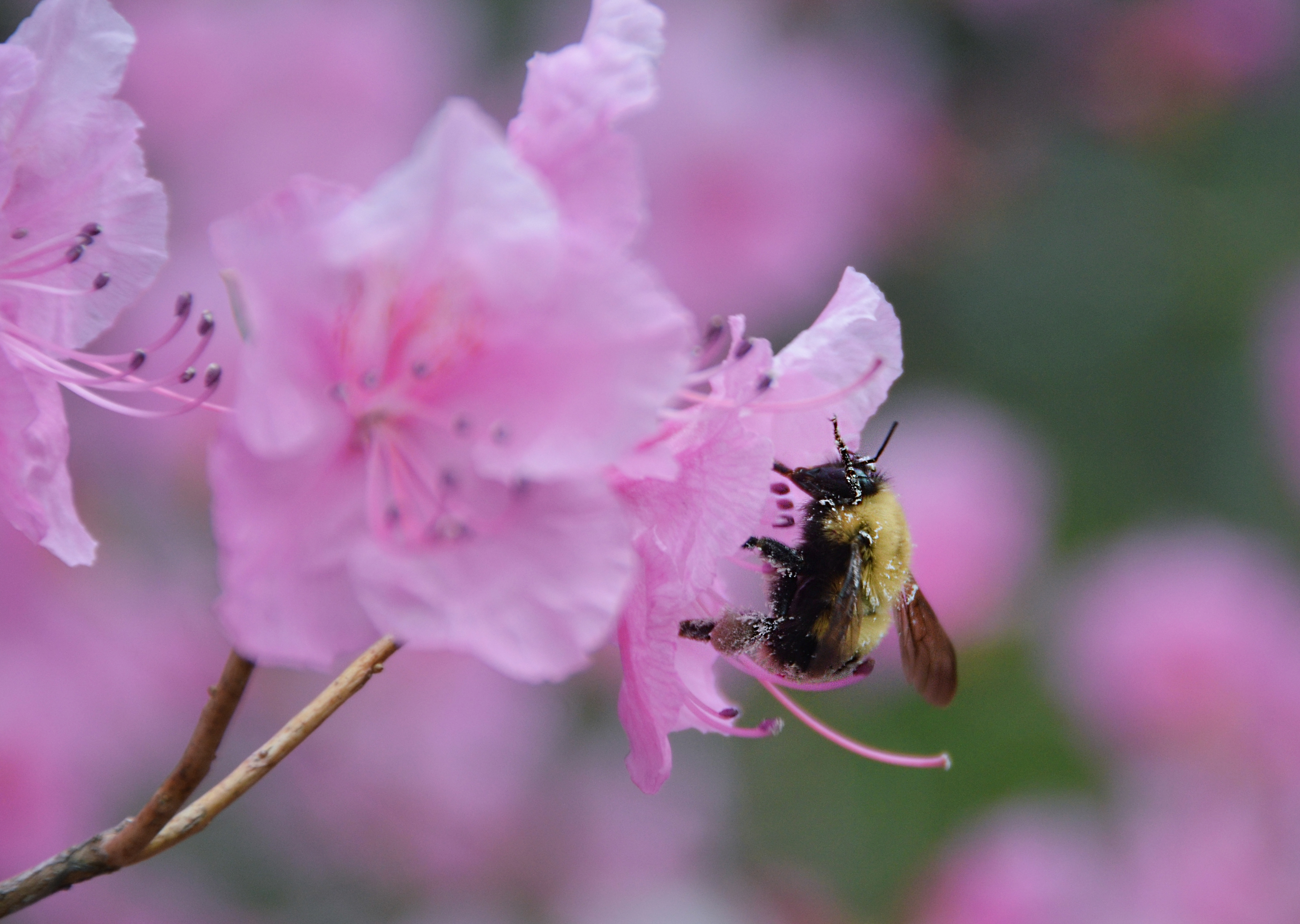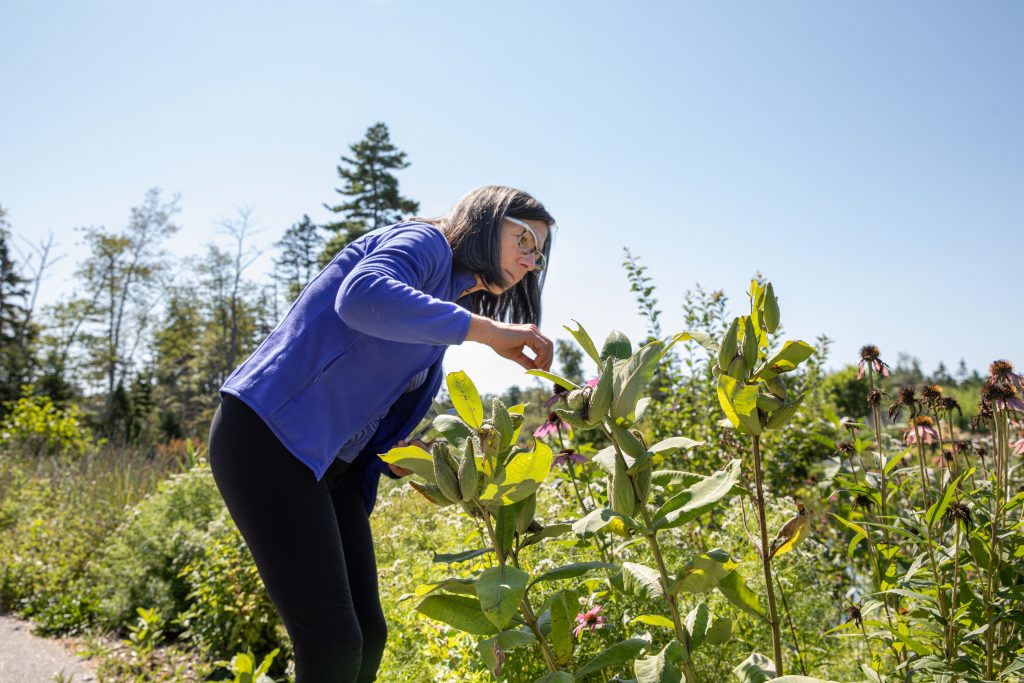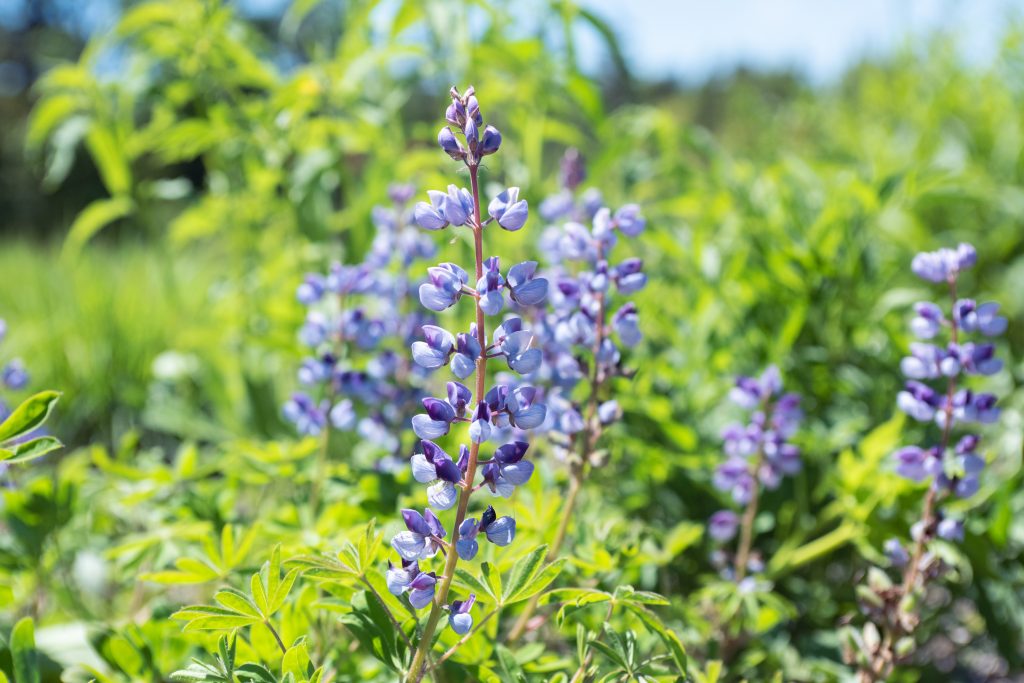Most of us are probably aware of the importance of bees, from pollinating almost everything we eat to the production of honey, beeswax, pollen, royal jelly, and propolis. Bees are so vital and so fascinating, that they’ve been studied and connected to human society for thousands of years.
 “All the great thinkers have become beekeepers,” says Erin MacGregor-Forbes, CMBG’s Chief Operating Officer, co-owner of Overland Apiaries, Chairman of the Eastern Apicultural Society (the largest noncommercial beekeeping society in the country), and guru of the Gardens’ apiary.
“All the great thinkers have become beekeepers,” says Erin MacGregor-Forbes, CMBG’s Chief Operating Officer, co-owner of Overland Apiaries, Chairman of the Eastern Apicultural Society (the largest noncommercial beekeeping society in the country), and guru of the Gardens’ apiary.
What is it about bees that’s so fascinating? “Bees aren’t domesticated; they’re livestock, not pets—they swarm, change. You can’t contain them. We’re more caretakers or managers than bosses. Nobody’s the boss of the bees,” Erin says. “They have community spirit and this determination to create a stable, functional home complete with social interactions, sanitation, information and transport systems, division of labor, and peaceful cohabitation.” In other words, no individual bee succeeds unless the whole colony succeeds—cooperation and the collective good come first.

Thanks to Erin’s mad beekeeping skills, CMBG’s apiary boasts nine hives—and they’re incredibly active. “Massive pollination happens here,” Erin says. “The reality in nature is that honeybees make the plants perform better,” she explains. “Imagine a fruit tree where there are no native pollinators. The tree atrophies and doesn’t flower well. Fruiting makes hormones that stimulate flowering. If you start pollinating an older tree, the next year it actually produces more fruit. It’s a feedback loop, a regenerative system—more flowers, more fruit, more seed.”
Has all of this got you curious about bees? You can always learn more at CMBG, from observing bee behavior in one of our many gardens to discovering bee-centric books and products in the Gardenshop.
“Bees make a difference in awareness,” Erin concludes. “People get curious about them and, really, they’ve changed the way we see community. The bees have affected the people of the Gardens as much as they’ve affected the plants.”


